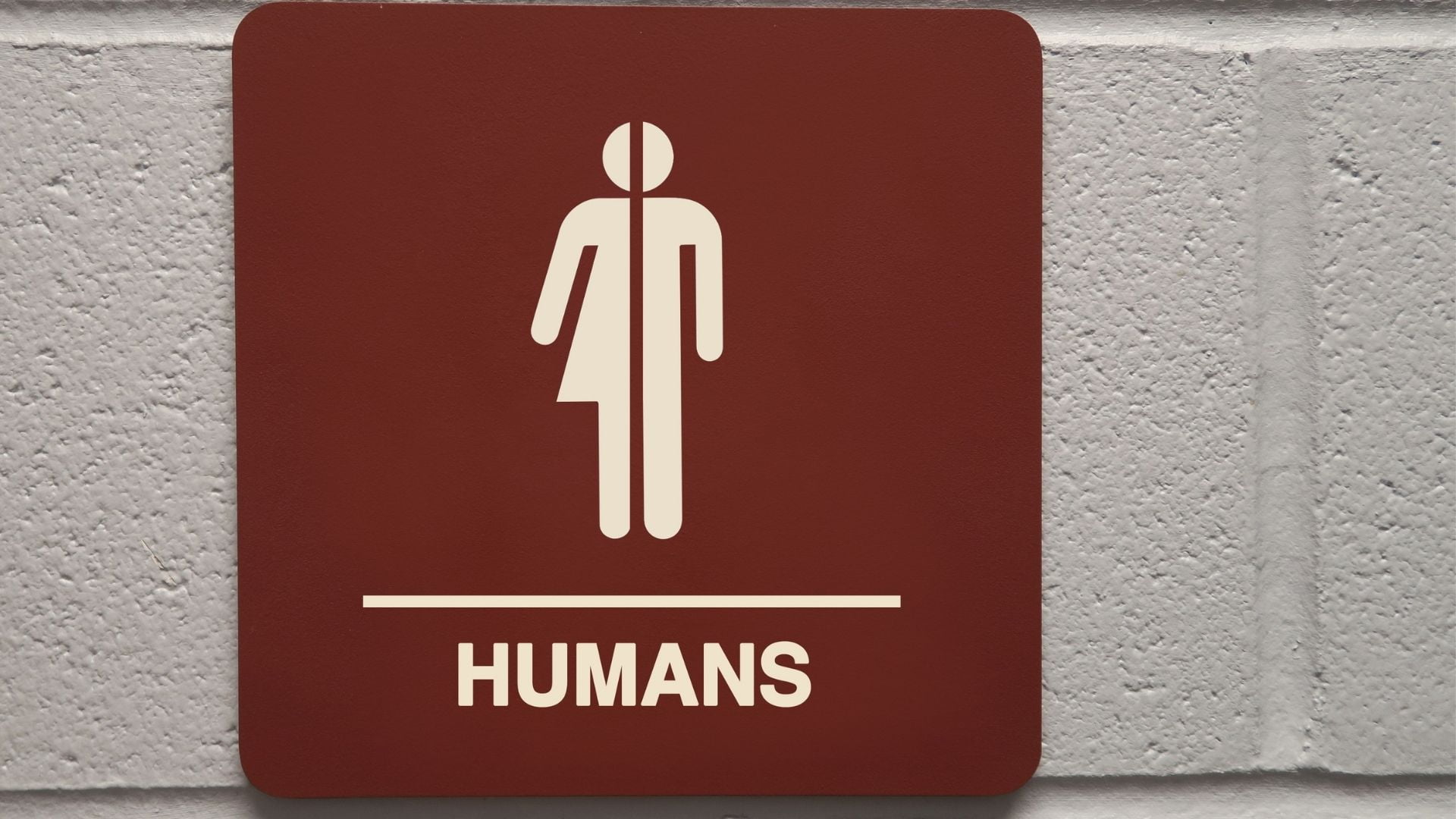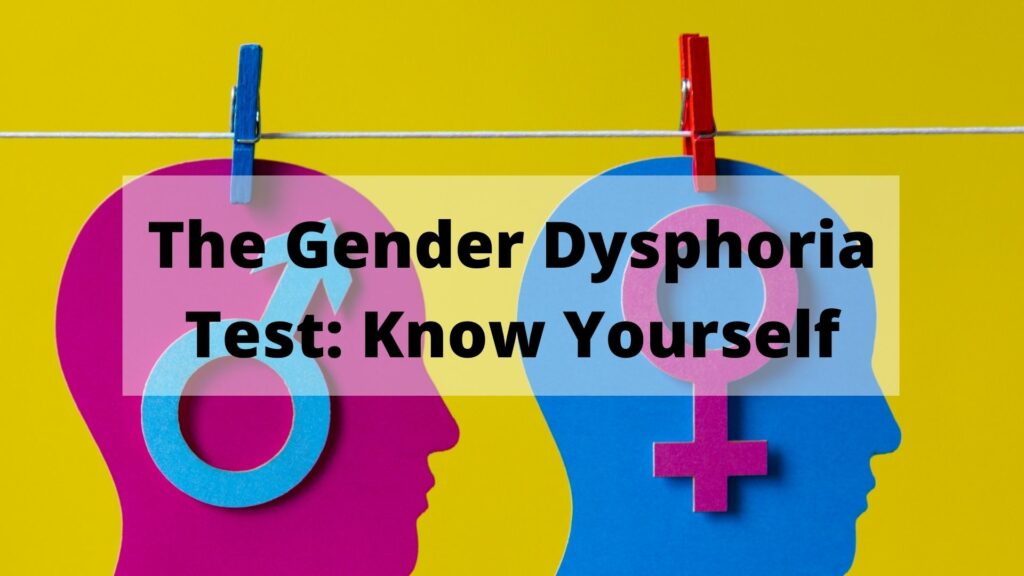Gender Dysphoria Test
What gender am I? This is a question that many people have asked themselves at one point in their life. However, it can be difficult to answer. Therefore, sometimes gender dysphoria tests are used to help identify gender identity. However, these tests often provide confusing or unclear results. In this blog post, we will discuss the gender dysphoria test. It can help you how you can know yourself better through more accurate gender identity.
Contents
What is Gender Dysphoria?
Gender dysphoria is an uncomfortable or distressing sensation. However, this may differ from the one assigned at birth. Therefore, people suffering from gender dysphoria may claim that their physical sex characteristics do not match their psychological sex.
Moreover, gender dysphoria affects transgender and gender-nonconforming individuals at some point in their lives. However, not everyone is affected. Some transgender and gender-nonconforming people are comfortable with their bodies. Either with or without medical intervention.
A condition that causes a person who was born male to feel distressed or unhappy because of this fact is known as gender dysphoria. Gender dysphoria is a diagnosis found in the Diagnostic and Statistical Manual of Mental Disorders (DSM-5). This is published by the American Psychiatric Association for mental disorders.
Symptoms of Gender Dysphoria
Gender dysphoria may manifest at any age. Therefore, it may have begun in childhood and has continued into adulthood (early-onset). After some time when you no longer have gender dysphoria. Chances are you might experience it again. Gender dysphoria may occur at puberty or much later in life (late-onset).
Adolescents and adults who are gender dysphoric. They may experience the following:
- A significant disconnect between your internal gender identity. The gender you were assigned at birth. As evidenced by at least two of the following:
- A significant gap between your internal gender identity and your primary and/or secondary sex characteristics, or anticipated secondary sex characteristics in adolescents.
- A strong desire to get rid of primary and/or secondary sex traits due to a large difference with your inner gender identity, or a desire to avoid the creation of primary and/or secondary sex characteristics due to a significant conflict with your inner gender identity of anticipated secondary sex characteristics in young adolescents.
- The desire for the other gender’s primary and/or secondary sex characteristics
- A strong desire to be of the opposite gender or an alternative gender that differs from one’s birth gender.
- An inclination to be regarded as a member of the other gender or an additional gender that is not connected with one’s assigned gender
- Moreover, you have a firm belief that you have typical male or female sentiments and reactions. Rather than the gender assigned at birth.
- Significant emotional or physical harm in one’s social, professional, or other areas of life functioning.
How To Identify Gender Dysphoria?

There are a variety of ways to find out if you have gender dysphoria. Moreover, one of the most popular ways is to take an online test for gender dysphoria. However, the quiz authors usually provide it for free. Although sometimes a small fee may be involved. Others prefer to do their self-tests by making a list of the indicators and symptoms they’ve been experiencing.
Moreover, most gender dysphoria tests ask a series of multiple-choice. These include questions about your experiences and feelings. Therefore, this may determine if you have gender dysphoria.
What Is A Gender Dysphoria Test?
A gender dysphoria test is a set of psychological questions to determine whether you have gender dysphoria. The gender therapist will talk to you about your symptoms, how long they’ve been going on for if there are any related complications such as depression or anxiety, and other possible causes for these feelings. You can also take a gender dysphoria test online at the comfort of your home.
Who Should Take This Test?
There is a list of questions below that pertain to common life events encountered by individuals who have been diagnosed with gender dysphoria. However, it was formerly known as gender identity disorder.
This test is for gender dysphoria in children and adults. As well as adolescents.
This quiz is not a diagnostic tool. Therefore, only a qualified mental health expert or doctor can diagnose mental health problems.
Sample Questions For Gender Dysphoria Test

Individuals who experience gender dysphoria are frequently stigmatized and persecuted. Therefore this leads to a poor self-image. However, this may also increase the risk of other mental disorders.
Do you suffer from gender dysphoria? Below are ten statements. Indicate the level of your agreement for each of the following answers.
You’re self-conscious about your shape.
- Never
- Rarely
- Sometimes
- Often
- Always
When people identify you by your birth gender. You become uncomfortable.
- Never
- Rarely
- Sometimes
- Often
- Always
You despise clothing that is typically intended for your birth gender.
- Never
- Rarely
- Sometimes
- Often
- Always
You don’t want to show off your body. Especially in a swimming costume.
- Never
- Rarely
- Sometimes
- Often
- Always
You’re more drawn to people of the opposite sex. More than you are to people of your gender.
- Never
- Rarely
- Sometimes
- Often
- Always
You preferred games and pastimes for the opposite sex as a child.
- Never
- Rarely
- Sometimes
- Often
- Always
You don’t want to glance into mirrors.
- Never
- Rarely
- Sometimes
- Often
- Always
You begin to doubt your gender.
- Never
- Rarely
- Sometimes
- Often
- Always
You feel more self-assured and at home in clothing generally associated with the opposite sex.
- Never
- Rarely
- Sometimes
- Often
- Always
As a result of your personal history. You are frequently sad or dejected.
- Never
- Rarely
- Sometimes
- Often
- Always
You’ve experienced gender prescriptions restrict your freedom.
- Never
- Rarely
- Sometimes
- Often
- Always
When you imagine yourself with the body parts of a different gender, you may discover pleasure.
- Never
- Rarely
- Sometimes
- Often
- Always
Some More Sample Questions

You pick your non-biological gender if tests require it.
- Never
- Rarely
- Sometimes
- Often
- Always
You prefer to purchase clothing from the opposite gender’s department.
- Never
- Rarely
- Sometimes
- Often
- Always
You’re irritated with being assigned a gender.
- Never
- Rarely
- Sometimes
- Often
- Always
You feel like your gender has been assigned to you.
- Never
- Rarely
- Sometimes
- Often
- Always
Moreover, you feel trapped in your body.
- Never
- Rarely
- Sometimes
- Often
- Always
You select the characters of the opposite gender while playing a game.
- Never
- Rarely
- Sometimes
- Often
- Always
You sob about not having been born as a different gender.
- Never
- Rarely
- Sometimes
- Often
- Always
You consider yourself to be of a gender. However, this one differs from the one you were given at birth.
- True
- False
You wish you were of a different gender. Other than the one you were given at birth.
- True
- False
You’ve never felt entirely masculine or feminine.
- True
- False
You are at ease expressing yourself as the sex assigned to you at birth.
- True
- False
You can handle or enjoy the concept of presenting as your birth gender.
- True
- False
Results and Interpretation
Moreover, if the person taking the test agrees to more than half of the questions. Then the person might be suffering from gender dysphoria. However, talk to a mental health professional before concluding.
Conclusion
If you are struggling with your gender identity. Therefore, it is important to know that there are many resources available for support. To find out more about what could be causing these feelings. Try taking our free online sex and gender dysphoria test today! Our team of experts has put together this quiz to help people better understand their thoughts on the topic of sex and gender dysphoria. We hope that by seeing some other possible causes for such feelings you may feel less alone or confused when dealing with them yourself. If you want a chance at getting an accurate diagnosis from one of our professionals who knows how to deal with sexual issues like this, we encourage you to take the time now and complete the form below so they can get back to you as soon as possible.
If you are looking for affordable Online Counseling MantraCare can help: Book a trial therapy session


